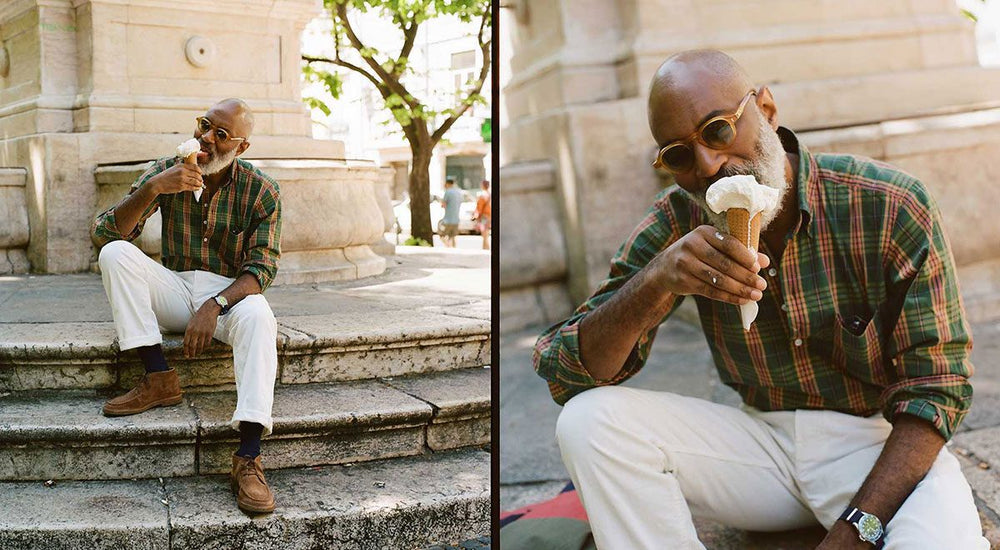2019ClothingShirts
The Popover's Progress
By Aleks Cvetkovic
Jul 13, 2022

Aleks Cvetkovic traces the popover's progress, from rarely seen undershirt, to star of the summer wardrobe.
The humble popover is often overlooked, and much maligned in menswear. To some, it has a fustiness about it – associated with the mid-century overhead shirts or undershirts worn by pipe-smoking fathers and grandfathers in the 1950s. This, I contend, is a shame – and thankfully, Drake’s agrees with me.
The popover’s history is straightforward. It’s the predecessor of the now ubiquitous button-through shirt, and it has its origins in the Victorian era, when the norms of menswear relaxed just enough for shirts to evolve from being ‘undershirts’ – never to be seen beneath a sizeable cravat, and waistcoat buttoned up to your chin – to garments that you might in some rare circumstances be permitted to display in public.

Then, in the early 1800s Beau Brummell popularised the white linen shirt as a prestige item, morphing the image of the Mr. Darcy-esque gentleman in voluminous white shirt sleeves into something of a fashion icon, before a shirtmaker called Brown, Davis & Co. of Aldermanbury, London, patented the first known button-through shirt in 1871. This eclipsed the popover shirt, returning it back to the role of ‘undershirt’ for many fashionable European men. It’s this long-standing association that lends the popover its louche connotations today.
Regardless, the popover persisted through to the 1930s in different forms and has made periodic reappearances ever since. Today, it occupies clever hybrid territory in modern menswear: smarter than a polo, but less formal than a classic button-down. This goes some way to explaining why popovers are so effortlessly cool today – they’re that little bit more interesting than their fully buttoned equivalents and present an ever-so-slightly bohemian attitude, particularly when worn unbuttoned and suitably ruffled.

To bring things up to date, Drake’s has a trio of popovers in the collection this season. The first is cut in plain mid-blue chambray, the second in white and blue broad stripe linen-cotton, while the third comes in an Italian oxford cloth in a fetching green check. All are equally relaxed, and offer a carefree alternative to conventional shirts, perfect for high summer dressing and resortwear. They also benefit from lightweight cloths, which are both breezy to wear and cool to the touch.
As I’ve already outlined, the joy of a popover is that it encourages slouchy style. From a purely practical perspective, pulling on a popover is easier than trying to pull together a shirt and tie combination, but they are best worn in a dégagé rather than a lazy way. Try yours beneath a rumpled linen blazer or overshirt with a summer scarf strewn about your shoulders for a chic look.
Whether you try the plain chambray, the green check oxford, or the white and blue striped popover this season, remember that each is intended to be worn with the minimum of fuss and not a care in the world. If in doubt, wear yours on holiday – they’re made for it this summer.


